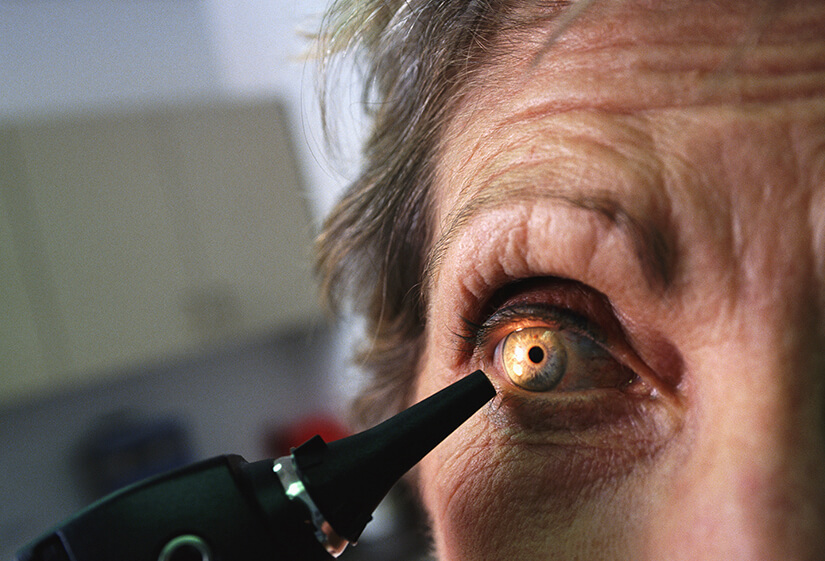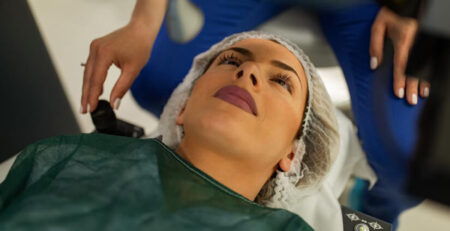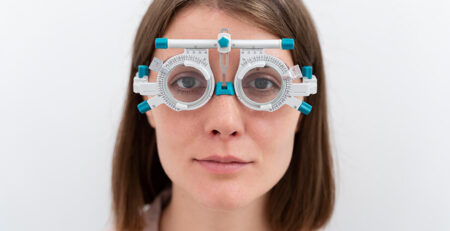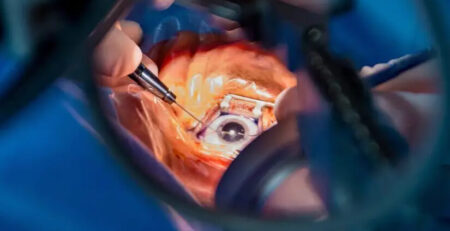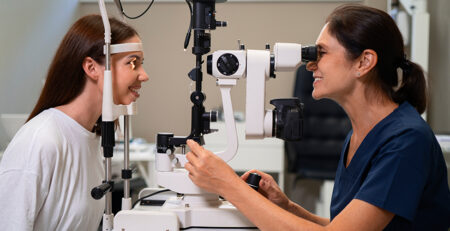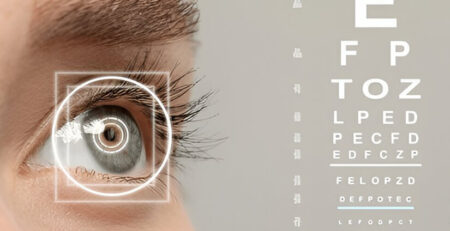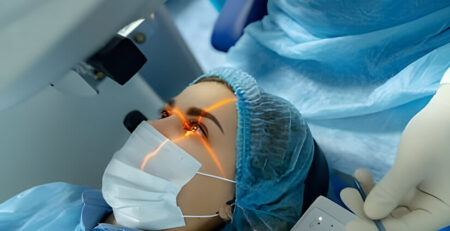Which Lens To Choose For My Cataract Surgery?
Are you worried about blurred vision and looking for an effective solution?
Wondering what the results will be after your cataract surgery?
So many options for intraocular lenses (IOLs), but require help deciding which one is right for you?
When preparing for cataract surgery in Delhi, one of the best places to improve your vision, it is natural to have questions. Medical advancement has brought us several types of lenses to correct the ocular condition, but making the right choice on your own cannot be easy. If you are considering cataract surgery, you may be wondering which lens to choose for the procedure.
Fortunately, every best cataract surgeon in Delhi with experience will help you choose the right lens for your cataract surgery, suiting your individual requirements and medical history.
Read this article to know better about the different types of lenses for cataract surgery, and get the information that will help you make an informed decision.
Understanding Cataract
Imagine you are driving on a highway, and suddenly everything around you starts to look hazy and blurred. The street signs become difficult to read, and you cannot distinguish between the brake lights and turn signals. This is what it feels like to have a cataract.
A cataract is a clouding of the natural lens of the eye, which can lead to vision problems. The lens, located behind the iris and the pupil, is responsible for focusing light onto the retina, which sends visual signals to the brain to see. When the lens becomes cloudy, it can interfere with the passage of light, causing blurry or hazy vision. The best cataract surgeon in Delhi will perform a proper assessment and inform you whether you have cataracts or how severe they are.
If you are diagnosed with cataracts, several treatment options are available to restore your vision. The most effective treatment for cataracts is corrective surgery, which involves removing the lens which causes vision problems and replacing it with an artificial intraocular lens (IOL).
In cataract surgery in Delhi, a small incision is made in the eye. The cataract is broken up using an ultrasound probe, and the pieces are removed. An IOL is inserted through the same incision.
Now that we understand cataract surgery let’s discuss what an intraocular lens is.
What is an Intraocular lens?
An intraocular lens is an artificial lens implanted during cataract surgery to replace the eye’s natural lens. Sir Harold Ridley implanted the first IOL in the human eye in 1949, made of Perspex acrylic. As cataract surgery technology has advanced, various types of intraocular lenses have also evolved, becoming safer and more efficient.
Dr Anisha Gupta is one of the best cataract surgeons in Delhi. She uses her experience and extensive knowledge of intraocular lenses to match the patient’s condition and medical profile. The type of treatment and lens depends on the severity of the cataract. The best eye specialist in Delhi selects the perfect IOL for your needs, ensuring a comfortable recovery with positive outcomes.
Let us learn about 4 commonly used IOLs in cataract surgery:
1- Monofocal IOLs
The most common type of IOL used in cataract surgery are the Monofocal lenses. These lenses have a fixed focus and can correct vision for either near or distant, but not both. If you choose a monofocal IOL, you’ll need to wear glasses to correct any residual refractive errors after surgery.
2- Multifocal IOLs
These lenses are designed to correct both distant and near vision, reducing the need for prescription glasses after surgery. Multifocal IOLs have multiple focusing zones; however, they may cause some visual disturbances, such as glare or halos around lights, and may not be suitable for every patient.
3- Toric IOLs
Toric lenses are designed to provide better vision correction than traditional lenses, allowing patients to see more clearly at all distances. It also corrects astigmatism, a common condition where the eye’s cornea is irregularly shaped. When performed by the best cataract surgeon in Delhi, like Dr Anisha Gupta, toric IOLs are aligned precisely to improve vision.
4- Extended Depth of Focus (EDOF) IOLs
Extended depth of focus lenses is a newer type of IOL designed to provide a range of focus from near to intermediate and far distances. This type of lens works by adjusting the amount of light that enters the eye, providing patients with a seamless transition from distance to near vision. Extended depth of focus lenses is an excellent option for patients who do not want to rely on glasses after surgery.
Just like prescription glasses or contact lenses, IOLs also come in a variety of focusing powers. Depending on your cataract condition, cornea curvature, and medical profile, your ophthalmologist selects the ideal IOL for your eyes.
How Does One Choose The Best Lens For Cataract Surgery?
When deciding which lens to choose for your cataract surgery in Delhi, there are several factors to consider:
Eye Health
Your eye health and any pre-existing conditions should be considered when deciding which lens is best for you. For example, patients with certain eye conditions like macular degeneration may not be good candidates for multifocal or accommodating lenses.
Cost
Different types of lenses have different costs, and not all are covered by insurance. Consider your budget and how much you are willing to spend on the surgery and the lens quality.
Severity of Astigmatism
Astigmatism is a medical condition in which the cornea is not uniformly curved and distorts both near and distant objects. Most people with moderate to high astigmatism are recommended toric IOLs by their eye surgeons.
Lifestyle
Consider your lifestyle and the activities that are important to you. If you spend a lot of time reading or using the computer, a multifocal or accommodating lens may be a good choice. A toric lens may be a better option if you enjoy outdoor activities or sports requiring good distance vision. Your cataract surgeon may advise you not to choose a multifocal or EDOF lens if you frequently drive at night. Side effects such as glare or loss of contrast can happen in dimly lit places.
Choosing the right lens for your cataract surgery is a personal decision and should be made in consultation with your ophthalmologist. The decision should be based on your lifestyle, visual needs, and overall health.
With the help of the best cataract surgeon in Delhi, you will be able to understand the various pros and cons of IOLs and make the right choice for your cataract surgery.

Choosing The Right Surgeon For Your Cataract Surgery in Delhi
The choice of the right IOLs significantly impacts the final outcome of the cataract procedure, but the eye surgeon’s experience, qualifications, and reputation are also important factors.
The right IOL improves your vision and overall quality of life. Cataract surgery has become a routine and safe procedure with the latest advances in medical technology and surgical techniques. Dr Anisha Gupta, a leading cataract surgeon in India, has extensive experience performing cataract surgery and helping her patients choose the right lens for their individual needs. Her expertise, compassion, and patient-centric approach make her the top choice for cataract surgery in Delhi.
Book your consultation with the best eye surgeon in Delhi, Dr Anisha Gupta, today!

